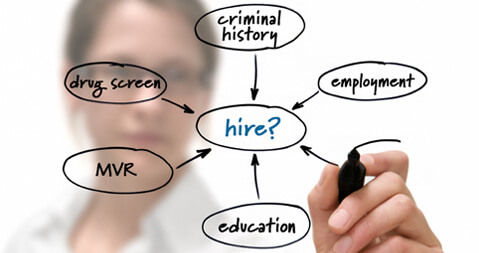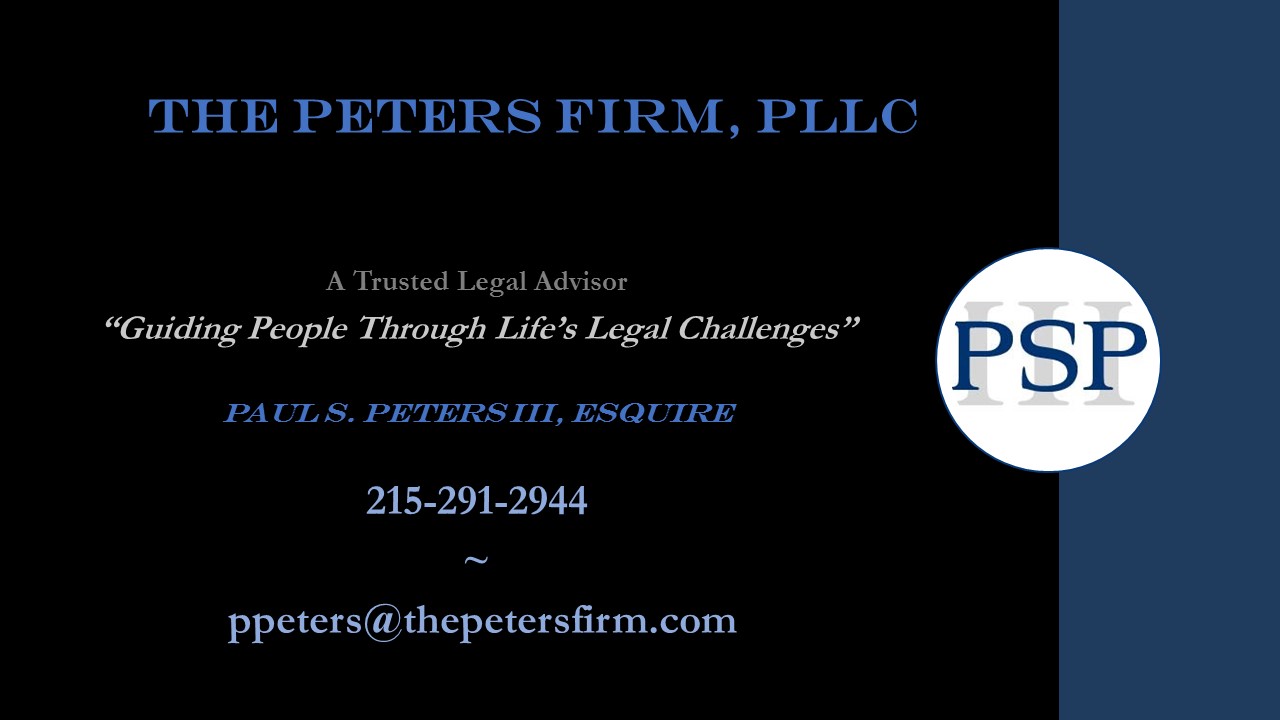
For example Will your Driving Under the Influence or Underage Drinking Conviction in college prevent you from getting the job of your dreams?
When applying for, or accepting a job, and at times during your employment, an employer may require certain types of Background Checks to be performed.
The reason being employers may be held financially and/or criminally liable for knowingly or negligently hiring employees that pose a threat to other employees and/or clients/customers/patients/students, etc. If an employer knowingly hires someone with a conviction for a violent crime or fails to do a criminal check to discover the conviction for the violent crime, the employer can be held liable if that employee assaults, injures, or kills someone connected to the business as an employee or customer, etc. Background checks are especially important when employees are working with children, the elderly or disabled, or performing work that could endanger themselves, other employees, or members of the public.
Types of Background Checks
2. FBI criminal history (this shows the criminal history across the US, not just the current state)
3. Department of Motor Vehicles (DMV) history
6. Verification of Past Employment, Education, and Professional Licenses, as well as a Reference Check
State and Federal Criminal Background Checks
Most job applications will ask if you have ever been convicted of a crime; therefore, it is crucial you are honest and upfront about any convictions. Many employers are willing to overlook some criminal convictions, and there are laws protecting those with certain criminal convictions. However, if you are not honest and upfront and the conviction is revealed in a background check, the dishonestly will many times cause you to not be hired, not the conviction.
Depending on your potential employer, the actual job, and/or the industry you are attempting to obtain employment in, the potential employer may conduct either a current state, or multi-state/federal background check. Employers may opt to have background checks go back as far as 10 years. If you are unsure if something will be on your background check, it is crucial you are honest up front and speak with the potential employer. Again, dishonesty is a more common reason to be turned down for a job than the results of a background check in many cases.
Some employers require potential employees to obtain background checks on their own, while other employers have their own internal process to obtain background checks on potential employees.
Lastly, some industries or employers require criminal background checks to be updated on a regular basis; and in some circumstances employers have rules in place that employees must notify employers within a certain time of arrests or convictions occurring while employed. The education industry is an example of this. Different State Departments of Education require different time periods (1 year to 5 years) that all criminal background checks must be updated.
Philadelphia’s “Ban the Box Law”
If you are applying for employment in Philadelphia, you should be aware of the “Ban the Box” rule. It is illegal in Philadelphia for employers to ask about criminal backgrounds during the job application process. The Fair Criminal Records Screening Standards Ordinance (“Ban the Box”) was enacted in Philadelphia to ensure that employers initially make hiring and other employment decisions based on work qualifications, not based on a person’s criminal record. The law restricts when an employer can inquire about a person’s criminal history and how it can be used. There are “ban the box” type laws in other cities and states as well, including in our area, New Jersey.
In Philadelphia, Employers can obtain your criminal background check ONLY AFTER a conditional offer of employment has been made (final hiring depends on the results of your background check).
• In most cases, criminal convictions can be considered ONLY if they occurred less than 7 years from when you apply (not counting time of incarceration). This may not be the case if the conviction prevents a certain type of license or certification, if it directly impacts the work being performed, or if the work is with children, the elderly or disabled. Additionally, if the conviction resulted in placement on the Sex Offender Registry (Megan’s Law), this can prevent employment in certain industries, or in certain geographic areas.
- Arrests that did not lead to conviction cannot be used in any employment decisions.
If your background check reveals a conviction, the employer must consider:
- The type of offense and the time that has passed since it occurred;
- Its connection to the job you are applying for; and
- Your job history, character references, and any evidence of rehabilitation.
Employers can reject you based on your criminal record ONLY if you pose an unacceptable risk to the business or to other people.
If you are rejected for employment due to the results of a criminal background check, the employer must send the decision to you in writing with a copy of the background report used to make the decision. You then have 10 days to explain your record, prove that it is inaccurate, or provide proof of rehabilitation.
Hiring Decisions Based on Criminal Record
If the background check reveals a criminal conviction, certain laws provide you protection from discrimination.
Title VII of the Civil Rights Act of 1964 prohibits discrimination in all aspects of employment including screening practices and in hiring, which can include unintentional race discrimination caused by excluding anyone with a criminal record. The Fair Credit Reporting Act addresses the issue of accuracy in consumer records, including criminal background checks.
The federal agency that enforces Title VII – the Equal Employment Opportunity Commission (EEOC) — has issued guidance explaining how employers can screen out applicants whose criminal records pose an unreasonable risk without engaging in discrimination. In deciding whether a particular offense should be disqualifying, employers must consider:
- the nature and gravity of the criminal offense or conduct;
- the nature of the job (including where it is performed, how much supervision and interaction with others the employee will have, and so on); and
- how much time has passed since the offense or sentence.
The EEOC also states that employers should give applicants with a record an opportunity to explain the circumstances and provide mitigating information showing the employee should not be excluded based on the offense.
If a background check reveals convictions for Rape and other sexual offenses, Murder, Arson, Burglary, Armed Robbery, and other serious violent felony convictions, denying employment may be an easy and safe decision for an employer. In the education industry, certain felonies automatically disqualify you from employment in education.
It is for misdemeanor and non-violent felonies where the employer must use discretion when an applicant has convictions. Examples can be driving under the influence (DUI), disorderly conduct, minor drug offenses, minor thefts, etc. In these cases, the employer will use discretion to determine how the conviction relates to the job, how many convictions occurred, and how much time has passed since the conviction.
In many cases, and for many types of positions, employers may overlook a DUI conviction as a one-time mistake, unless there are multiple convictions. However, if you are applying for a job as a driver, travel with a company-provided car, or driving with clients, the one DUI offense alone may be sufficient to disqualify you from employment in the employer’s eyes.
The federal Fair Credit Reporting Act (FCRA) protects applicants from inaccurate criminal records. Criminal background checks may include errors, such as information on convictions that have been expunged, multiple listings of the same offense, incomplete information, misclassification of crimes, and even records that belong to someone else entirely. The FCRA imposes obligations on employers who request criminal background checks and on the firms that provide them. Employers must:
- Obtain the applicants written consent to run the background check ahead of time;
- Notify the applicant if the employer intends to disqualify him or her based on the contents of the report. The employer must also give the applicant a copy of the report if they make an adverse decision based on the report; and
- Tell the applicant after the employer makes a final decision not to hire him or her based on the information in the report.
Department of Motor Vehicles
For jobs that require a specific type of license, substantial driving, or the use of a company-provided vehicle, a copy of your driving history as it relates to tickets, points, and license suspensions may be run. Depending on what is revealed, a negative driving record may disqualify you from this type of job.
Child Abuse History
For jobs that involve any contact with children, including education, daycare, medical, and certain jobs in the criminal justice system, a Child Abuse History to be run.
Credit Report
The FCRA which I addressed above, highly regulates the use of credit reports. If you are applying for a job in the financial industry or one in which you have frequent access to other people’s money, an employer may want to see your credit report. For example, if a credit report shows multiple delinquencies on debts, a high amount of debt, and/or bankruptcies, those may be an indicator you are not to be trusted with other people’s money or may be at risk for temptation to steal or misappropriate money belonging to others.
There are other ways that employers may look into your background when applying for a position, including Social Media, Google, etc.
If you have questions, are concerned, or feel you have been discriminated against due to a employment background check in Pennsylvania, you should consult with a trusted and experienced Employment Law Attorney versed in the area of Pennsylvania Employment Background Checks and Discrimination.
If you are a Pennsylvania employer with questions about or dealing with a Pennsylvania Employment Background Check matter you should consult with a trusted and experienced Employment Law Attorney versed in the area of Pennsylvania Employment Background Checks and Discrimination.



